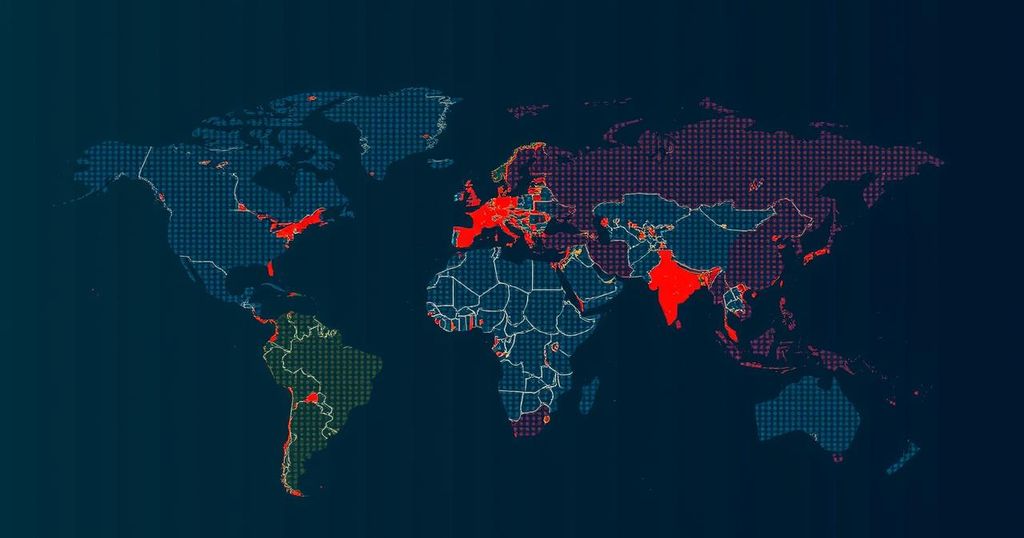A recent panel at Stanford University explored five critical global challenges: a coalition of authoritarian states threatening the liberal order, internal threats to democracy, the resilience of Ukraine amid war, ongoing challenges posed by China, and progress in addressing climate change. Scholars underscored the need for strategic responses to navigate these issues effectively.
In a recent discussion hosted by the Freeman Spogli Institute for International Studies (FSI) at Stanford University, experts explored pressing global challenges, including climate change, geopolitical tensions, and democratic backsliding. Scholars emphasized the interconnectedness of these issues and the implications for global stability. Illiberal Influence Amichai Magen discussed the emergence of an aggressive coalition of authoritarian states—termed the “axis of misery”—comprising Russia, Iran, North Korea, and China’s increasing influence. He highlighted the dangers of their collective aim to dismantle the liberal international order, which historically has led to decreased military spending and enhanced societal investments. Magen warned that three nations, Ukraine, Israel, and Taiwan, face existential threats that could lead to a dangerous global reversion to might-makes-right politics. Democratic Challenges Within Didi Kuo identified threats to democracy originating not just from external forces, such as authoritarian states, but from internal erosion by elected leaders aiming to consolidate power. While cautioning against apathy, Kuo provided examples of successful coalitions in various countries that have resisted such illiberal movements, underscoring the importance of adaptability in democratic institutions. Ukraine’s Resolve Steven Pifer challenged the narrative that Ukraine is destined to lose the war against Russia, pointing out that while Russia has made territorial gains, the cost to its military is unsustainable. He stressed the determination of Ukraine for victory and the need for increased support from allies to secure a stable Europe, thereby warning against the repercussions of a Russian victory in Ukraine. China’s Persistent Influence Oriana Skylar Mastro asserted that despite economic slowdowns, China’s influence and military power present a long-term challenge. Recognizing that the United States must adapt its strategy towards the developing world is essential for effectively maintaining stability in Asia amid the shifting balance of power. Progress on Climate Change Lastly, Marshall Burke noted that while significant progress is being made in reducing carbon emissions, achieving substantial climate objectives remains imperative. He pointed out legislative measures like the Inflation Reduction Act that contribute to this progress, yet emphasized that the world must brace for ongoing climate impacts and strive for enhanced mitigation and adaptation strategies. The panel underscored the importance of recognizing and addressing these complex interrelations among global threats, reminding the audience of the urgency needed in navigating these multifaceted challenges effectively. The full discussion is available for listening on the World Class podcast and can be viewed on YouTube, along with a transcript of the event.
The discussion at the Freeman Spogli Institute for International Studies (FSI) occurred amid a complicated global landscape marked by challenges such as climate change, the war in Ukraine, intensified geopolitical tensions involving China, and deteriorating democratic practices both domestically and internationally. Scholars from FSI aimed to elucidate how these diverse threats are interconnected and what strategies may bolster international stability.
In conclusion, the panel discussion revealed that the interconnectedness of contemporary global challenges necessitates a multifaceted approach towards stable governance, democracy, and international relations. It emphasized that while substantial progress has been made in various areas, particularly climate change, vigilance and proactive measures remain crucial in mitigating the threats posed by authoritarianism and geopolitical conflicts. The scholars called for a strategic vision for both cooperation and resistance to these threats to ensure a stable global order moving forward.
Original Source: fsi.stanford.edu






